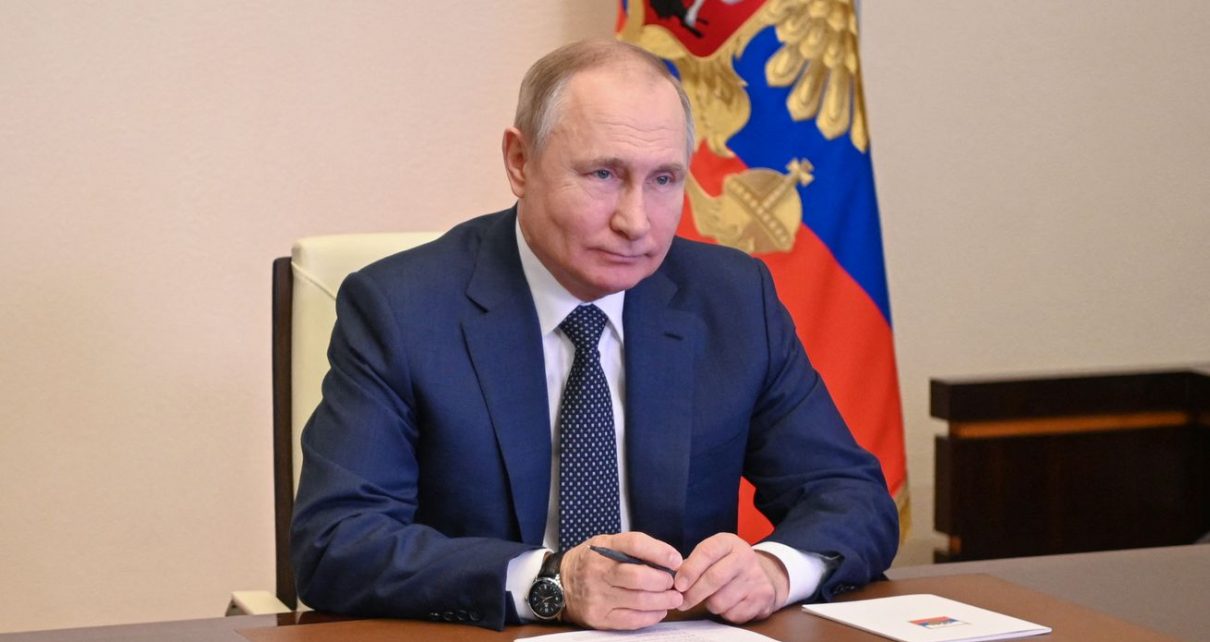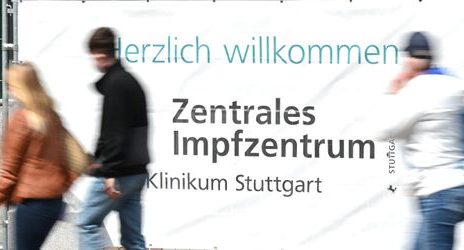
Why Putin’s crackdown on social media is a worrying sign.
After a week of threats and half-measures, the Russian government has officially blocked Facebook and continues to restrict Twitter from the tens of millions of users in the country who use the apps daily.
The move comes at a time when the Russian government is unsurprisingly increasing its crackdown on the free press and other sources of information to control the narrative about its invasion of Ukraine (which Russian media is not allowed to call a war, but instead a “special military operation”). In the past few weeks, the few remaining independent local news outlets in Russia that are not government-affiliated have been shut down, Russian President Vladimir Putin signed a new law that threatens up to 15 years in jail for Russians who post “fake news” about the invasion, and the government has already arrested thousands of anti-war protesters.
Now, Facebook and Twitter — which Russians have used to voice dissent and share independent news about the brutality of the war — are the latest target of Putin’s crackdown on media. While Facebook and Twitter have complicated track records and are sometimes used by bad actors (even the Russian government itself) to interfere with democracy, Putin’s shutdown of these apps will undoubtedly have a chilling effect on political speech in Russia.
Russians can still find other news sources, watch YouTube, and communicate on apps like Telegram — one of the most popular social media apps in Russia — but the government is stifling discussion on two major platforms where it’s easy to broadcast to massive audiences, and where people in Russia can share with the rest of the world. It’s unclear if the government blocks will extend to other apps that Facebook’s parent company Meta owns, like WhatsApp and Instagram.
“Censoring is too modest of a word right now for what they’re doing,” said UC Irvine law professor and former UN special rapporteur for free speech David Kaye.
Meanwhile, Russia’s communications regulator, Roskomnadzor, has accused Facebook of being the one doing the censoring, saying in a statement released on Friday that the social media company was engaging in “discrimination against Russian media and information resources.” In the past week, Facebook has begun fact-checking what it says are misleading claims published by Russia Today (RT) and other state media within Russia, and it’s blocked RT in Europe and the UK.
Facebook’s president of global affairs Nick Clegg previously said that the Russian government was trying to stop Facebook from implementing its independent fact-checking efforts, and on Friday posted a statement on his Twitter account in response to the Kremlin’s Facebook shutdown.
“Soon millions of ordinary Russians will find themselves cut off from reliable information, deprived of their everyday ways of connecting with family and friends and silenced from speaking out,” Clegg tweeted. “We will continue to do everything we can to restore our services so they remain available to people to safely and securely express themselves and organize for action.”
Twitter has previously said that its services are restricted in Russia but not fully blocked. “We’re aware that Twitter is being restricted for some people in Russia and are working to keep our service safe and accessible,” Twitter’s company account tweeted on February 26.
While many political experts believe that these crackdowns will help Russia’s government tighten its grip, in a twist that’s surprising to some, Ukrainian government leaders had recently been urging Facebook and Twitter to cut off access to their apps in Russia. That’s because the Ukrainian government viewed it as a kind of “sanction” on the Russian government, in the hope that the action would prompt Russians to pressure the government to act differently.
“There’s this weird irony in that Ukraine was demanding the companies take the steps of not being available in Russia, and now Russia has done that for them. And I think it’s a bad outcome,” Kaye said. He added that he understands Ukrainian concerns that social media platforms are being used to spread pro-Russian propaganda and the desire to penalize its government.
Social media platforms — especially Facebook— have been criticized for being places where anti-democratic and even genocidal movements can flourish, fueled by unchecked misinformation and calls to violence that social media companies failed to adequately moderate. But it’s complicated. These platforms are also meaningful tools for freedom of expression, particularly in places like Russia where there are limited independent media outlets, and social media fills in the gaps created by the state’s filters. While getting rid of Facebook and Twitter won’t stop political dissent in Russia overnight (for now, Russians can still use other apps, like Telegram, to communicate) — this seems to be just the beginning of Putin’s crackdown. It’s also likely to inspire other authoritarian regimes that are considering making similar moves.
Even when social media platforms are blocked in a country, there are always workarounds to sidestep restrictions, like using virtual private networks, or VPNs. But that can make organizing inaccessible to many who don’t have the financial or technical skills or political inclination to do so.
“Ordinary Russians are rushing to install VPNs, but it’s true only about the liberal part of the society — the rest are left in the dark,” said Russian investigative journalist Andrei Soldatov, a senior fellow at the Center for European Policy Analysis. “Global platforms should do whatever it takes to stay available.”





